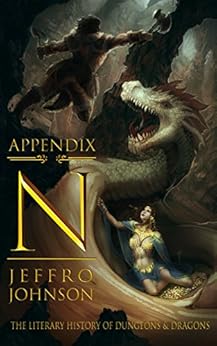The 20 rules of formulating knowledge violates its own rules. I'm spoiling for anyone who hasn't read this and removing the chance to have this awesome discovery. When you realize it violates itself, then you may realize that it becomes the first exercise of the 20rffk.
Going back to TRPGs, below is the simplified version of the 20rffk.
- Understandable.
- Simplified.
- Organized.
- Engaging.
#5 User Friendly. Does it give me all the tools that saves me time to run my game. In one prep session can I print out all the tools? Tables, Character Sheets, Rule References, Flow Charts etc...
My Methodology
Basically this is Auditing, we check against something, typically criteria or
SMART goals.
- Take note of Violations to the 5 point criteria.
- Taken note when they go out of their way to explain further. If they use more than one way to explain a point and they used one of the 5 point criteria.
- Take note when I don't understand.
The 20 rules of formulating knowledge Simplified to 4 points.
Understandable
1 Understand to learn.* (Do not learn if you do not understand)
2 Learn before you memorize
3 Build on the Basics
*my favored methodology is always to frame as an action and detail as a constraint.
Simplified
3 Build on the Basics
4 Use the minimum information principle
5 Simplify and make discrete each bit of knowledge (originally Cloze deletion is easy and effective)
6 Use Imagery. It takes some visual planning and design to formualte what images help engage the audience as well as serve a learning tool. Rarely do game writer work with their designers for visual learning aids the focus more on engagement.
7 Use Mnemonic Techniques
12 Optimize Wording
Organized
8 Use formulas, models, or definition (originally Avoid Sets). instead of creating a set and filling in the elements of the set, just use a formula to describe the category.
9 Chunk Information (Originally Avoid enumeration; chunking means keeping this 2-4 bits long)
11 Track Interference (Originally Combat Interference)
12 Optimize Wording
18 Provide Sources
17 #3 and always create a link to the basics (originally Redundancy does not contradict the minimum information principle)
19 All relevant accessible and referenced. (original Provide Date stamping. in the case of TRPGs, create a way for people to see all the relevant topics under a category like the See Also section in wikipedia. this is for the purpose of updates, errata, and other such added details that accumulate over time)
20 Prioritize.
Engaging
6 Use Imagery.
7 Make discrete Imagery notes, while keeping a holistic view (Graphic deletion is as good as cloze deletion)
13 Give tools for Personalization (Originally Refer to others memories; the best way to create tools for personalization is knowing your audience)
14 Personalize and Provide Examples. (allow the audience to be able to personalize)
15 Rely on Emotional States
16 Context cues simplify wording
Goals and Objectives
A strong relationship with our audience, even those who don't agree with us or have the same preferences. A methodology and process can be critiqued and communicated to other people. It creates a basis to align our perspectives as well as to allow us to include the perspectives of others.
Assuming (Criteria, Goals and Objectives, and Methodology) is where a lot of miscommunication begins. Its better to have it all out and written for feedback than to not write it and make incorrect assumptions.
Reasons
What caused me to write this is the argument about knowledge complexity. The 20rffk helped create a method of measuring complexity. I will post more on bridging the Gap of Audience and Product in the future. But this post and the related post are the basics.
Inaccessible Knowledge is knowledge that cannot be used or enjoyed. Everything learned occupies space (in its written form) and time, and it all adds up to make things more complicated and complex as to be inaccessible. If we are very connected with our audience and empathic of their circumstance we can overcome the Isolationist tendency of being in an Ivory tower with our knowledge.
Related

